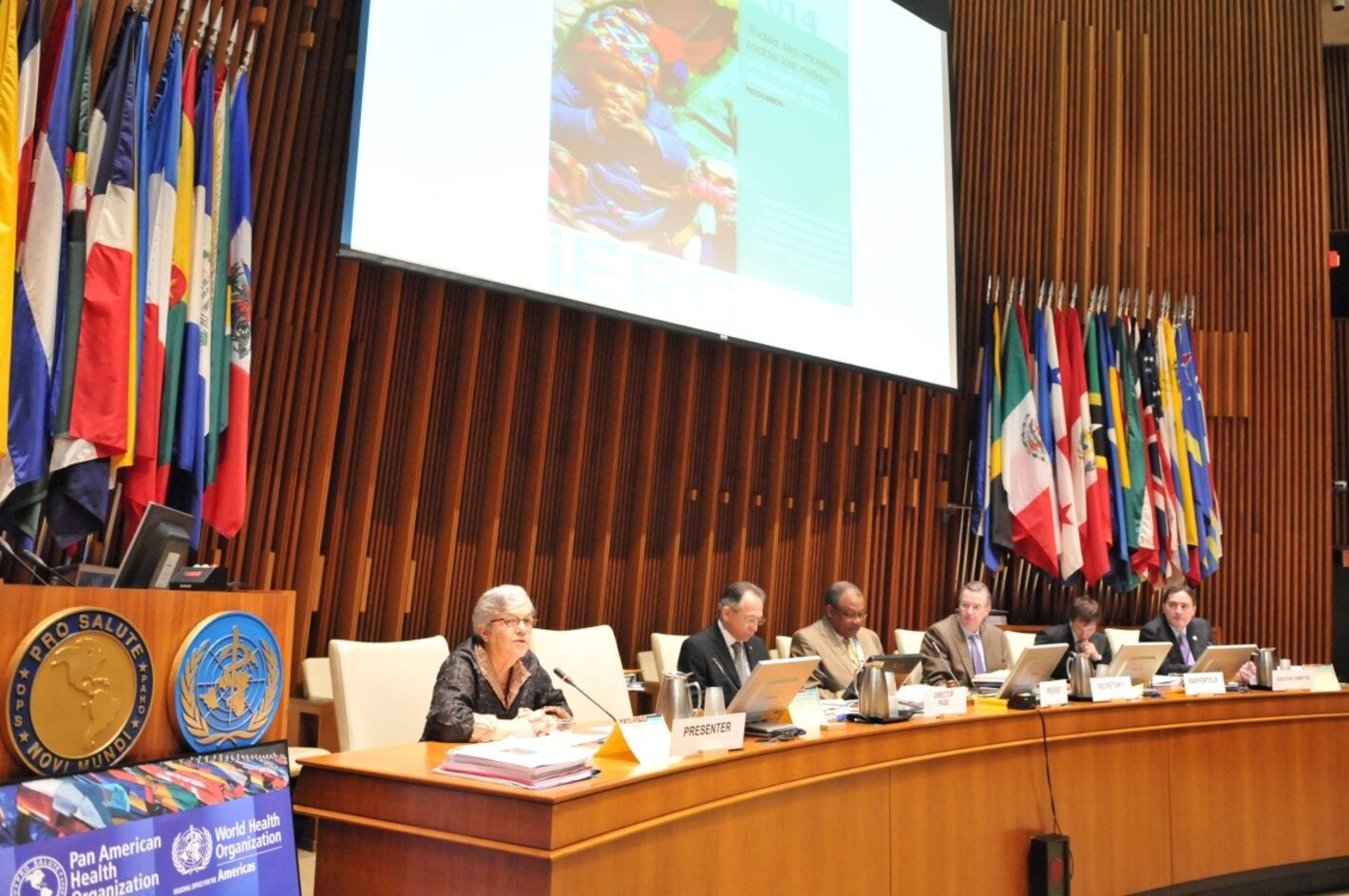
Washington, D.C., 3 October 2014 (PAHO) - There has been progress in improving the health situation of women and children in the region of the Americas and the world, but there is much left to do, said Carmen Barroso, Regional Director of International Planned Parenthood Federation, Western Hemisphere Region (IPPF/WHR), and one of nine members of the independent Expert Review Group (iERG). Barroso presented the findings from the 2014 iERG report, Every Woman, Every Child: a Post-2015 Vision, during PAHO's 53rd Directing Council.
The 2014 iERG report, which looks at the 75 countries globally with the greatest contribution to maternal and child mortality, states that gaps in achieving universal access to reproductive health still exist — 161 million sexually active women from the 75 countries do not have access to the modern family planning methods they need - and that there is no consensus on any country meeting Millennium Development Goal (MDG) 5 targets to reduce maternal mortality ratios by three-quarters by 2014.
However, of the seven countries on target to meet MDG 4 to reduce under-5 mortality by two-thirds, two — Brazil and Peru - are from the Americas. Barroso attributed the progress made to unprecedented political support for maternal and child health.
Still, even where progress has been made, there remains much to do. During the iERG visit to Peru this past year, Barroso reported constructive meetings with different levels of government. Nonetheless, the group observed that causes for concern remain, including enormous inequalities, a need for health reform focused on human rights, and insufficient funding for health.
The daunting task of addressing these concerns "should not make us complacent or paralyze us," said Barroso. "The pace at which things are progressing is quickening. We have been able to demonstrate that accountability is a powerful tool to keep us focused."
At this year's World Health Assembly, the iERG stressed that accountability needs to be an integral part of the post-2015 development agenda, said Barroso. Additionally, donor countries should continue to support middle-income countries in their efforts to establish accountability mechanisms in their work to eliminate poverty and inequalities, given that a large majority of people living in poverty live in middle-income countries.
The (iERG) was created in 2011 by the UN Commission on Information and Accountability for Women's and Children's Health (COIA). The final report of the Commission proposed an accountability framework for women's and children's health, together with 10 recommendations. On the issue of global reporting, the Commission called for a time-limited independent Expert Review Group to be established and to operate until 2015.



